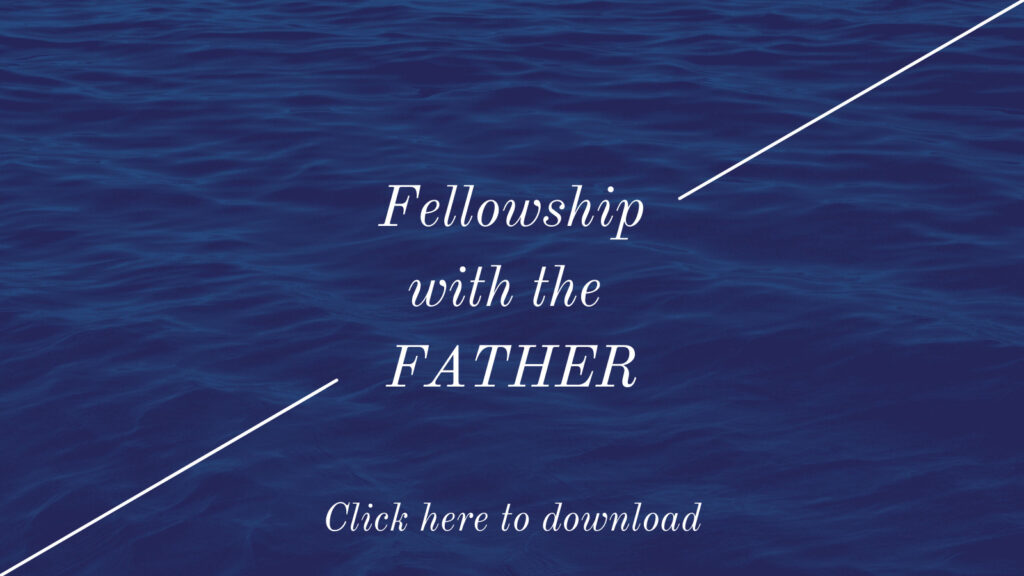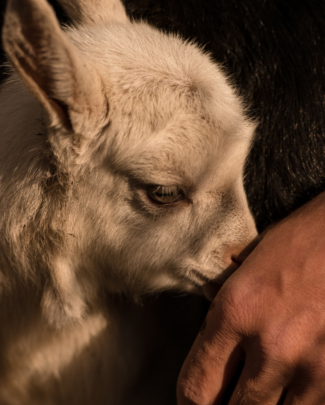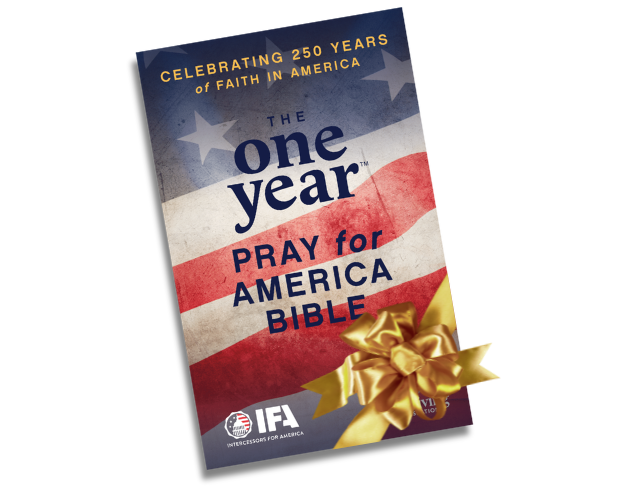Why Is Passover Important for Believers in Christ?
Why Is Passover Important for Believers in Christ?
Have you ever wondered how the feasts of the Old Testament, the feasts of the Lord described in Leviticus 23, connect to our modern-day celebrations of Resurrection Sunday (Easter) or Holy Week?
Isaac spoke to Abraham his father and said, “My father!” And he said, “Here I am, my son.” And he said, “Behold, the fire and the wood, but where is the lamb for the burnt offering?” Abraham said, “God will provide for Himself the lamb for the burnt offering, my son” (Genesis 22:7–8).
The next day he saw Jesus coming to him and said, “Behold, the Lamb of God who takes away the sin of the world!” (John 1:29).
We Gentile believers know by the Spirit that this time of year calls for a solemn and joyful commemoration, and that its significance gives hope to our cry of, “Hosanna! Blessed is He who comes in the name of the Lord!” Our very bodies and souls react in worship to our Jesus, the Lamb of God who takes away the sin of the world (see John 1:29,36). His death, burial, and resurrection are the foundation and anchor for our assurance of salvation and eternal life. But do any other events that He took part in during the time leading up to His arrest, interrogation, crucifixion, burial, and resurrection reveal more fully the plan of God for our redemption and transformation? Let us look more closely at the tripartite Passover Feast.
This content is supported by your donations. Give today.
The biblical feast called Passover is actually three overlapping feasts celebrated in the spring of the year: the Feast of Passover, the Feast of Unleavened Bread, and Firstfruits (see Leviticus 23:4–8). Together, these run for seven days, from the 14th to the 21st of the Hebrew month of Nisan. God’s calendar is not the one we use daily to organize our lives. His days begin at sundown (see Genesis 1), and with the first Passover (described in Exodus 12), God instituted the Hebraic calendar that starts in the spring with the month of Nisan. It is a lunar calendar, and each new month begins with the new moon. Nisan is roughly equivalent to March–April on our Gregorian calendar.
In Exodus 12:1–15, God not only gives Moses a blueprint for how He will protect the Israelites from the final plague unleashed against their Egyptian taskmasters — the plague of the death of the firstborn — but He institutes the Passover as a memorial to Him that is to occur throughout all their generations. It is to become for them an everlasting ordinance. In Leviticus 23:1–2, God reviews all His feasts: The Lord spoke to Moses saying, “Speak to the people of Israel and say to them, ‘These are the appointed feasts of the Lord and you shall proclaim them as holy convocations, they are MY appointed feasts’ ” (emphasis added).
The Hebrew word used here for “appointed feasts,” moedim, suggests that God has appointed times to meet with His children. I don’t know about you, but I don’t want to miss even one of my appointments with God! We as Gentile believers tend to relegate these feasts seasons to the Jewish people, who continue to celebrate them to this very day. It is one way in which the Hebrew people have maintained their identity through the millennia of their diaspora. But God called these HIS feasts. It is interesting to note that after the birth of the church at Pentecost — another Jewish feast called Shavuot, or Feast of Weeks — Jewish and Gentile believers celebrated all the feasts of the Lord for hundreds of years until Roman Emperor Constantine, in an attempt to unify his empire, promoted Sunday worship as the day of Jesus’ resurrection; he outlawed both worship on the commanded Sabbath day (Saturday) and use of the biblical calendar for calculating Passover. Constantine eventually replaced all the feasts of the Lord with liturgical holidays and Easter and Christmas. Daniel prophesied these things in Daniel 7:25, saying that rulers would arise and change God’s times and seasons.
“This month shall be your beginning of months; it shall be the first month of the year for you [biblical month of Nisan]. On the tenth of this month, every man shall take for himself a lamb — a lamb for a household. Your lamb shall be without blemish … now you shall keep it until the 14th of the same month then the whole house of Israel shall kill it at twilight. And they shall take some of the blood and put it on the two doorposts and on the lintel of the houses where they eat it. Eat the flesh that night roasted in fire and with unleavened bread and with bitter herbs shall they eat it. … For I shall pass through the land of Egypt on that night [the 15th day, beginning at sundown] and strike down the firstborn in the land of Egypt, both man and beast: and against all of the gods of Egypt I will execute judgment: I am the LORD. When I see the blood, I will PASS OVER you. So, this day shall be to you a memorial; and you shall keep it as a feast [moed] to the LORD throughout your generations. You shall keep it as a feast by an EVERLASTING ORDINANCE” (Exodus 12:1–14 [emphases added throughout]).
God gave the Israelites very specific instruction for how to celebrate the Passover. Each family was to choose a lamb on Nisan 10, making sure it was spotless and without blemish. They were to keep it until the 14th day of Nisan, at which time they were to slaughter it at sundown and then take some of the blood, using a hyssop branch, and apply it to the doorposts and lintels of their homes. The Lord would see the blood on their homes, and the angel of death sent to kill the firstborn of the Egyptians would pass them over (see Exodus 12:11–13). They were then to hastily eat the lamb, roasted in its entirety, along with bitter herbs and unleavened bread (Hebrew: matzah), while wearing their traveling clothes, ready to depart Egypt.
After scouring their homes to remove all leaven, they were then to eat only matzah for seven days, Nisan 14–21. This is the Feast of Unleavened Bread.
Last, after entering the land He promised them, the Israelites were to take a first sheaf from the barley harvest — a group of individual stalks bound together — and give it to the priest, who would wave it before the Lord. As the priest did this, the harvest was consecrated to God. This is called Firstfruits, and it happens on the Sunday (first day of the Hebrew week) after Passover (see Leviticus 23:9–14).
These feasts of the LORD were dress rehearsals for events that would be fulfilled by God’s own Passover Lamb, Jesus. In every detail, Jesus fulfilled all aspects of Passover, Unleavened Bread, and Firstfruits.
Passover:
Jesus entered Jerusalem on the 10th day of the month, now called the Triumphal Entry and celebrated as Palm Sunday (see John 12:12–13). This was the day the Passover lamb was brought into the city and set apart for inspection until the 14th. The very words the crowd shouted were from Psalm 118 — a psalm that the priests were praying in the temple that very day. Everything Jesus did this week would correspond to God’s calendar, and the events which had been repeated for centuries to foreshadow Him. As the Passover lamb — the animal — was being inspected for those four days, the Passover Lamb — Jesus — was as well. He was questioned, examined, and cross-examined by the religious leaders, who were trying to find a flaw in Him (see Matthew 21:23–27), but they could find no blemish — He was the spotless Lamb.
For you know that it was not with perishable things such as silver or gold that you were redeemed from the empty way of life handed down to you from your ancestors, but with the precious blood of Christ, a lamb without blemish or defect (1 Peter 1:18–19). As He ascended the hill of Golgotha carrying His cross (as Isaac had carried the wood for the sacrifice with his father Abraham) Jesus, the Lamb provided by God Himself, went willingly to death on the cross. He was the sinless Lamb of God slain for us from before the foundation of the world, His blood spilled so that we might apply it to the doorposts of our lives and hearts, so as to be saved from death (see Revelation 13:8).
The Jews prepared their chosen lambs for sacrifice at 9 on the morning of the 14th, and then slaughtered them at 3 in the afternoon. At this exact hour, Jesus was nailed to the cross (see Mark 15:25). Then at 3 o’clock — the ninth hour — as people praised God and slaughtered their lambs, thanking God for their deliverance, Jesus breathed His last and gave up His spirit (see Mark 15:33–37). Not one of His bones was broken (see Exodus 12:46; Psalm 34:20; John 19:36). Jesus’ body was taken down before 6 p.m. — the beginning of the next day — so that it might be fulfilled that nothing was left until the next day (Exodus 12:10).
Unleavened Bread:
Leaven became the symbol of our old life in slavery and bondage to sin. Jesus, the Bread of Life, had no leaven in Him (see John 6:32–35). It was during this feast that Jesus went into the temple and tossed out the money lenders (see John 2:13), thus removing all the “leaven” from His Father’s house. Jesus took on all of the leaven of our sin and was buried during the Feast of Unleavened Bread that had been celebrated for 1,500 years. In the same way that God had called the Hebrews out of Egypt to be a people set apart to Him, we are called to be set apart from the corrupt world system in which we live (see 1 John 2:15–17). Our sin separates us from God, and so the sinless One was made to be sin for us, that we might be made the righteousness of God in Christ Jesus (see 2 Corinthians 5:21). As we partake of the meal we call Communion, which is the Passover meal fulfilled, we eat the bread of His Body — the unleavened bread — and partake of the blood of the sinless Lamb, poured out for us.
Firstfruits:
Then the Lord spoke to Moses, saying, “Speak to the sons of Israel and say to them, ‘When you enter the land which I am going to give to you and reap its harvest, then you shall bring in the sheaf of the firstfruits of your harvest to the priest. He shall wave the sheaf before the Lord for you to be accepted; on the day after the sabbath the priest shall wave it’ ” (Leviticus 23:9–12).
This took place on the 18th of Nisan, the day after the Sabbath of Passover. The firstfruits of the harvest was a representation of the whole harvest, and in its presentation to the LORD, it became a consecrated harvest. Jesus fulfilled this feast by rising from the dead on that day as a FIRSTFRUITS of the harvest of souls set apart to God. Jesus was the human sheaf who conquered death and purchased eternal life (see Matthew 28:1–6). He ascended to the Father to present Himself as the firstfruits offering at the exact time that the sheaves were being waved in the temple. Romans 11:16 says: If the firstfruits are holy, the lump is also holy; if the root is holy then so are the branches. We died with Him — many human stalks in Him — so we will be raised with Him (Colossians 2:12; Rom 6:4–5). Hallelujah!
He chose to give us birth through the word of truth, that we might be a kind of firstfruits of all he created (James 1:18).
So why Is Passover important for us as Gentile believers?
1. It is part of God’s plan of salvation for us: Apart from the Passover, God’s people would have died as slaves in Egypt. Without the blood of the Passover Lamb, there is no redemption of sin and no freedom to live for God. In this redemptive act, God secured forever our purchase as His children cleansed by the blood of His Son, the Lamb of God.
2. We are spiritually united to Israel: Romans 11:17 tells us that when we became born again by faith in His blood sacrifice, we were grafted into Israel, who are the root. Because we are grafted into their root, we partake of all the blessings as Abraham’s sons and daughters. Ephesians 2:12 and 19 says we were at one time excluded from citizenship in Israel but are now fellow citizens with them and partakers of the covenant and of the great and precious promises. We do not, as Gentiles, have a separate covenant. The New Covenant in His blood was initiated at the cross, but we had to have an “old covenant” in order to get a new one! Their Passover is our Passover.
3. God designed Passover as a celebration of Jesus: 1 Corinthians 5:7 tells us that Jesus is our Passover Lamb. His beating, crucifixion, death, burial, and resurrection could have taken place during any season, but God instituted Passover so that in Him, our redemption would be contiguous with redemptive history. The blood of the Lamb is applied, and the angel of death must also pass over us. Our lives are made without leaven, so that we can live holy lives unto Him. His resurrection assures us that we, too, will be resurrected the day He returns to claim His throne in Jerusalem. Ah, but I get ahead of myself — that will be fulfilled during another feast altogether!
(Credits: Over many years, these authors have contributed massively to my understanding of this topic: Mark Biltz, Richard Booker, and Chuck Pierce and Robert Heidler.)
How are you celebrating Passover this year? Share below!
Lori Nicole Meed (Bachelor of Science; Bachelor of Education, Special Education) is a wife, mother, and grandmother who home-schooled her now adult children. In 2004, God moved her family from Canada to the U.S., imparting His heart for the U.S. and for revival. Having walked out her own journey of freedom after being radically born again in 1992, Lori has a heart to see others set free to walk fully in their destiny. She is a leader of an inner-healing and deliverance ministry at her home church in Pennsylvania. She also gathers and equips prayer groups for the U.S. and Israel. Lori has a passion for teaching on Aliyah (the return of the Jews to Israel), the feasts of the Lord, and the rich connections of the gentile churches to Israel. She is a prayer leader on IFA’s Headline Prayer, as well as being a contributing writer. Photo Credit: Canva.
Partner with Us
Intercessors for America is the trusted resource for millions of people across the United States committed to praying for our nation. If you have benefited from IFA's resources and community, please consider joining us as a monthly support partner. As a 501(c)3 organization, it's through your support that all this possible.


We use cookies to ensure that we give you the best experience on our website. If you continue to use this site we will assume that you are happy with it. Privacy Policy




Comments
Thank you so so much Lori for distilling this as a treasure we can review for ourselves and share with others…wherever we might be in God’s world.
I have celebrated Passover for 25 years when God told me to start celebrating His feasts. It is an appointed time with HIM as He reveals Himself more and more deeplyl
What an inspiring meditative article. I love truly love learning about my Lord and Saviors heritage. Thank you so much for weaving so many pieces together. God bless you.
May our Lord God continue to bless us with a desire to know His ways.
Have a happy and blessed Passover!